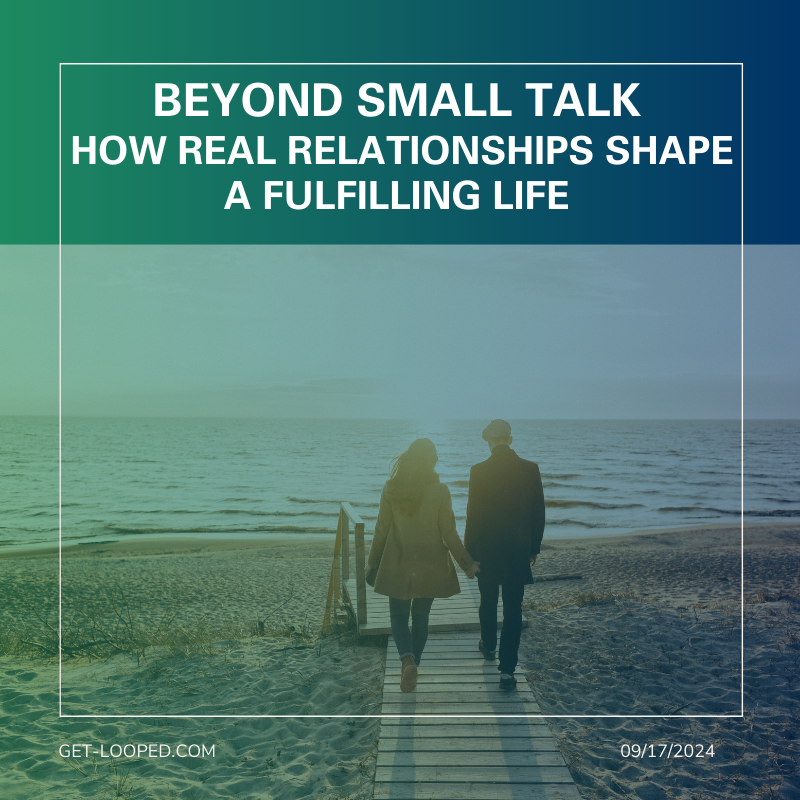Finding Healing As A Small Business Owner After Addiction
Loneliness is becoming a growing epidemic, affecting millions around the world. Many people feel isolated and empty despite being more connected than ever through social media. This disconnect from meaningful relationships profoundly impacts the quality of our lives. The truth is that the strength and depth of our relationships can influence our happiness, well-being, and overall life satisfaction.
Building and maintaining relationships requires effort. It is easy to think that a quick text, a like on a post, or casual small talk is enough to keep connections alive. However, real relationships demand more. These surface-level interactions do not nurture the emotional bonds that sustain lasting, fulfilling connections. The key to deep relationships lies in shared experiences and time spent together, which allows us to build trust, understanding, and emotional support.
This is why some of our closest and longest-lasting relationships are formed during our school years. In school, we spend significant time with others, going through shared experiences like classes, sports, and social activities. We grow, learn, and support each other through critical stages of life, and these experiences form the foundation for friendships that often last a lifetime.
Similarly, family relationships have the potential to be some of the most fulfilling and long-lasting relationships we can have. Our families know us deeply, often understanding aspects of our personality that others do not. The shared history and unconditional support that comes from strong family ties can create some of the best relationships we will ever experience. However, even family relationships require effort, attention, and care. Without nurturing these bonds, they can weaken over time.
Addiction is one of the greatest obstacles to forming genuine relationships. Addiction isolates individuals, both physically and emotionally, making it difficult to engage in meaningful connections. The nature of addiction involves secrecy, lying, and withdrawing from others, which prevents authentic relationships from forming. In an addicted state, a person becomes trapped in their own world, unable to open themselves up to the emotional vulnerability and trust that real relationships require. This isolation not only affects the individual but can deeply harm those around them, creating cycles of broken trust and emotional distance.
For those struggling with addiction, recovery is not just about breaking free from substance abuse; it is also about rebuilding relationships. It takes courage and time to mend the bonds that were damaged and to learn how to trust and be trusted again. Through shared experiences in recovery, whether with family, friends, or support groups, the potential for real, meaningful connections is restored.
Ultimately, the quality of our relationships plays a central role in the quality of our lives. Genuine relationships—built on trust, shared experiences, and effort—offer us the support and connection we need to thrive. Investing time and energy into nurturing these relationships, whether with friends, family, or even ourselves, is the key to overcoming loneliness and leading a fulfilled, connected life.



